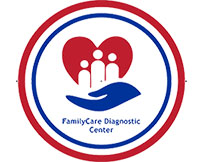Histopathology
Histopathology Department at FCDC
This department studies tissues and cells to help diagnose diseases, especially cancers and infections. It is run by highly qualified doctors called histopathologists, with trained lab staff who make sure the reports are accurate and delivered on time.
What Services Are Offered?
- Surgical Pathology
When someone has surgery or a biopsy (like taking a small piece of tissue for testing), the sample is sent to this lab.
This includes samples like:
Liver, kidney, spleen, and skin biopsies
Tumor biopsies
Uterus, breast, colon, thyroid, prostate, and amputation specimens
These samples are carefully prepared using modern machines and then reviewed by expert doctors.
For serious conditions like cancer, several doctors in the department discuss the case together to make sure the diagnosis is correct.
- FNAC (Fine Needle Aspiration Cytology)
This is a quick and simple test where a thin needle is used to take cells from a lump or swelling.
It helps doctors find out if a lump is cancerous, non-cancerous, or caused by infection or inflammation.
Common FNAC areas: Lymph nodes, breast lumps, thyroid swellings, and other soft tissues.
Female patients can request a female doctor to do the test.
The test is safe, painless, and done in a clean procedure room.
The sample is checked immediately to make sure it’s good enough (so you don’t have to come back again).
The final result is usually ready in 2–3 days.
FCDC also offers ultrasound-guided FNAC, which helps take samples more accurately from deeper parts of the body.
- Cytopathology
This means checking body fluids and smears under the microscope to look for disease.
Samples they test include:
Cervical (Pap) smears
Pleural and ascitic fluid (from chest or abdomen)
Sputum, urine, cerebrospinal fluid (CSF), synovial (joint) fluid
Special stains are used when needed to confirm what kind of cells or germs are present.
- Special Tests
Special stains are done to detect infections like fungal infections and tuberculosis.
For cancers or conditions involving lymph nodes (like blood cancers), they use advanced tests like:
Immunohistochemistry (IHC)
Molecular testing
These help doctors figure out the exact type of tumor or disease.
Immunohistochemistry (IHC)
This is a powerful test used mainly for cancer diagnosis.
It works by using special antibodies to find specific proteins in the tissue.
This helps in identifying the exact type of cancer and deciding on the best treatment.
FCDC has more than 60 types of antibodies and uses an advanced machine to perform these tests.
